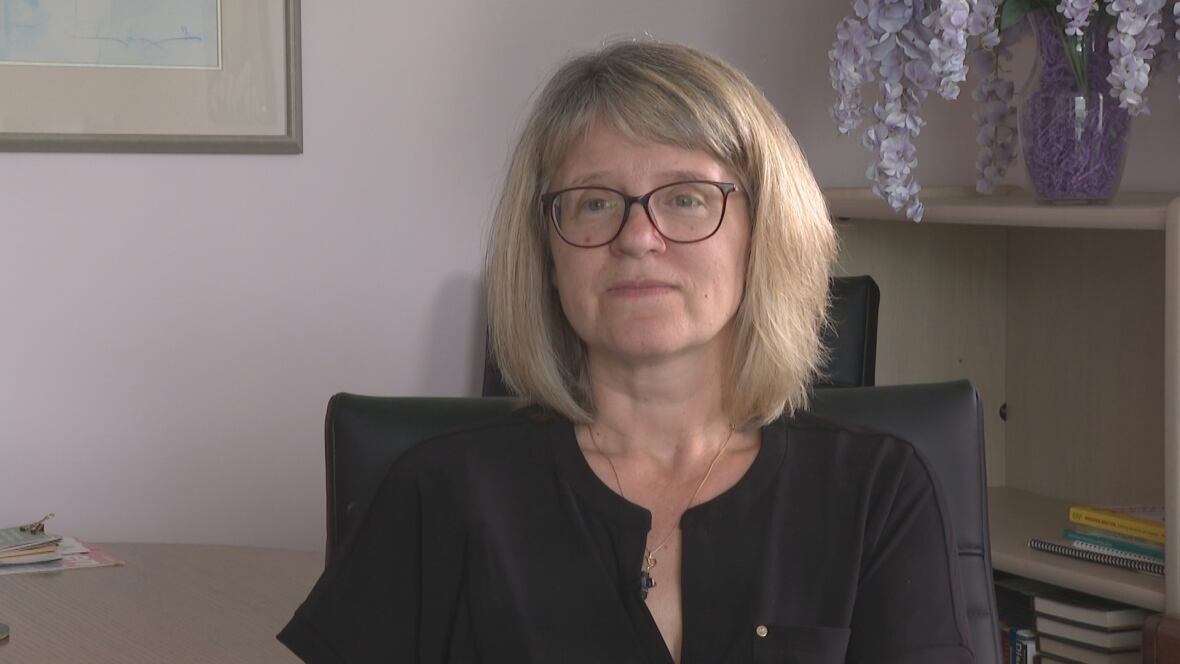Lack of available affordable rentals can leave Windsor-Essex women in 'unsafe situations.' Here's why
Rental report in Windsor-Essex shows more affordable options needed

Not having enough available and affordable rentals in Windsor-Essex can cause women to stay in abusive or unhealthy relationships, some shelter providers say.
A rental market report from the Canada Mortgage and Housing Corporation (CMHC) released this week pointed out that of the region's affordable options there were "no vacancies" for one bedroom units. An affordable unit is one where the tenant pays 30 per cent or less of their income on rent.
Anthony Passarelli, lead economist for southern Ontario with CMHC, said that not having these units available for low to mid-income renters is a "big warning flag that more supply is needed."
Shelter service providers in the region say that while housing affordability impacts everyone, it particularly affects those who are struggling with homelessness, addiction or intimate partner violence.
CMHC's rental report also found that while more rentals were being built, these new units were only affordable to the area's highest-income renters and primarily located outside of Windsor in Amherstburg, Lakeshore and St. Clair Beach.
According to the report, the average rental cost of a one-bedroom in Windsor this year increased to $1,095.
Women end up in 'unsafe situations'
In a letter to the city last month, the Legal Assistance of Windsor (LAW) — which provides legal support for survivors of gender-based violence — said that since 2021, eight women have been murdered in the region as a result of intimate partner violence.
It also said that in 2022 and 2023, Windsor police received more than 6,400 calls for service related to intimate partner violence. And over the last two years, LAW said that it has seen an "overwhelming demand" for service, helping more than 320 survivors of intimate partner violence and sexual assault.
The letter highlights that a variety of resources, from all levels of government, are what will address this worsening issue.
"It is well noted a lack of access to safe and affordable housing is a significant barrier preventing survivors from exiting a violent relationship," reads part of the letter.
And that's echoed by local women's shelters: Hiatus House and the Welcome Centre Shelter for Women and Families. Both told CBC News that affordable housing is an important piece of the puzzle, but that, increasingly, it's in short supply.
"It's not to say that the women that we're working with aren't resourceful and independent, but when you can't afford to live safely, when you don't have that basic need met, then you end up often in very unsafe situations," said Sylvie Guenther, executive director of Hiatus House.
Not being able to secure a place to live can mean women end up staying with an abusive or violent partner, but it can also mean they end up homeless or repeatedly cycling through shelters.
Guenther says it wasn't always like this: Women leaving abusive relationships or sexual assault survivors are prioritized through the City of Windsor's housing program. But while they used to be housed relatively fast, Guenther says now there's nothing available.
"It's one of the biggest frustrations for staff and for women who are accessing our program, is that we are forcing this discharge when women aren't ready and don't have a place to go," she said.
What's the impact?
Right now, women tend to stay in shelter six to eight weeks on average, but they're considering allowing them to stay longer. That's what's happening at the Welcome Centre Shelter.
"We're getting longer lengths of stays. We're seeing families that are having to make decisions between needing a three bedroom, four bedroom, but taking an entire family and putting them in a one bedroom perhaps," said Lady Laforet, executive director of the Welcome Centre Shelter.
She added that she also knows of families who, because of affordability, stay in "substandard housing" that needs "deep levels of repair."
"We know overall that there's health ramifications to that," she said.
Housing, she said, impacts someone's mental and physical health, employment and education.
Laforet says her staff have had to get creative to secure affordable housing options for people, like asking women to pair up and live with each other.
What's the solution?
The solution is building more affordable one-bedroom housing units, both Guenther and Laforet agreed.
But, without that, Guenther emphasized needing more transitional housing — a temporary housing option that also comes with other social supports like childcare or employment help.
Hiatus House is currently working toward building 40 transitional housing units across from its emergency shelter. Guenther says they are still in the process of securing more funding.

Meanwhile, Laforet says she thinks it's also about educating and working with private market landlords so that they are willing to rent to women on subsidized income like Ontario Works or Ontario Disability Support Program.
Declaring intimate partner violence an epidemic, as the City of Windsor did last summer, has meant more attention on the issue, which will hopefully expedite resources, says Guenther.
"It's really hard for the situation to change when there isn't that basic need being met — that is housing for people who are looking to rebuild their lives."

